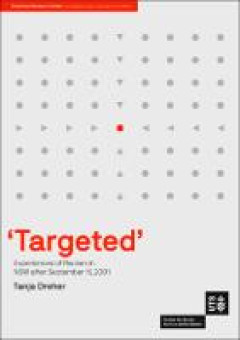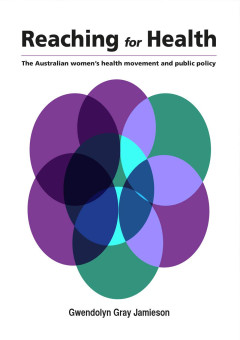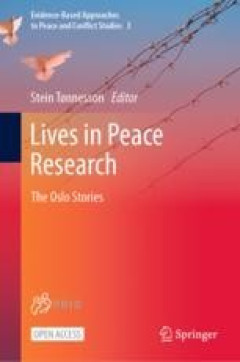Filter by

The borders of violence:temporary migration and domestic and family violence
This book explores the structural harm of borders and non-citizenship, specifically temporary non-citizenship, in the perpetuation of domestic and family violence (DFV). It focuses on the stories and situations of over 300 women in Australia. The analysis foregrounds how the state and the migration system both sustain and enable violence against women. In doing so this book demonstrates how str…
- Edition
- -
- ISBN/ISSN
- 9781003416159
- Collation
- xvii, 204 pages; illustration
- Series Title
- -
- Call Number
- 362.82 SEG t

Targeted' Experiences Of Racism In NSW After September 11, 2001
Targeted researches experiences of racism in New South Wales after September 11, 2001. The monograph analyses data collected by the anti-racism hotline established by the Community Relations Commission For a Multicultural NSW (CRC). It details a significant increase in racially motivated violence and verbal abuse in NSW in the months following the US 2001 September 11 attacks and finds these in…
- Edition
- -
- ISBN/ISSN
- -
- Collation
- -
- Series Title
- -
- Call Number
- -

Targeted' Experiences Of Racism In NSW After September 11, 2001
Targeted researches experiences of racism in New South Wales after September 11, 2001. The monograph analyses data collected by the anti-racism hotline established by the Community Relations Commission For a Multicultural NSW (CRC). It details a significant increase in racially motivated violence and verbal abuse in NSW in the months following the US 2001 September 11 attacks and finds these in…
- Edition
- -
- ISBN/ISSN
- -
- Collation
- -
- Series Title
- -
- Call Number
- -

Reaching for Health :The Australian women’s health movement and public policy
The women’s health movement shocked and scandalised when it burst into Australian politics in the early 1970s. It cast the light of day onto taboo subjects such as sexual assault, abortion and domestic violence, provoking outrage and condemnation. Some of the services women created for themselves were subjected to police raids; sex education material was branded ‘indecent’. Moreover, wome…
- Edition
- -
- ISBN/ISSN
- 9781921862687
- Collation
- 394p. : ill
- Series Title
- -
- Call Number
- 362.1982 JAM r

Lives in peace research
This open access book explains how PRIO, the world’s oldest peace research institute, was founded and how it survived through crises. In this book, twenty-four of its researchers and associates, including Johan Galtung, Ingrid Eide, and Mari Holmboe Ruge, who founded the institute back in 1959, tell the stories of their roles in inventing and developing peace research. They reflect on their p…
- Edition
- -
- ISBN/ISSN
- 9789811647178
- Collation
- xx; 508 PG; ill.
- Series Title
- -
- Call Number
- 327.172072 LIV l

Lives in peace research
This open access book explains how PRIO, the world’s oldest peace research institute, was founded and how it survived through crises. In this book, twenty-four of its researchers and associates, including Johan Galtung, Ingrid Eide, and Mari Holmboe Ruge, who founded the institute back in 1959, tell the stories of their roles in inventing and developing peace research. They reflect on their p…
- Edition
- -
- ISBN/ISSN
- 9789811647178
- Collation
- xx; 508 PG; ill.
- Series Title
- -
- Call Number
- 327.172072 LIV l
 Computer Science, Information & General Works
Computer Science, Information & General Works  Philosophy & Psychology
Philosophy & Psychology  Religion
Religion  Social Sciences
Social Sciences  Language
Language  Pure Science
Pure Science  Applied Sciences
Applied Sciences  Art & Recreation
Art & Recreation  Literature
Literature  History & Geography
History & Geography